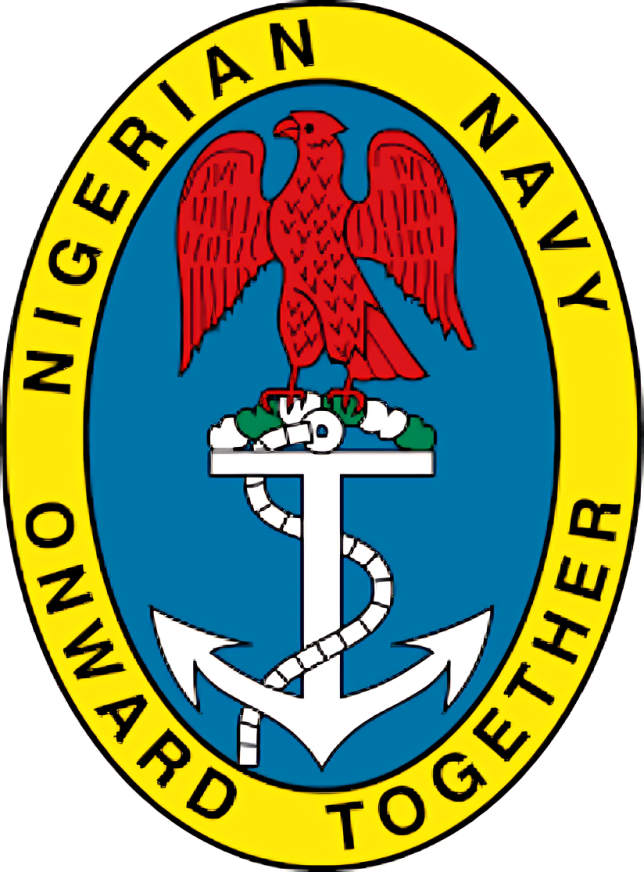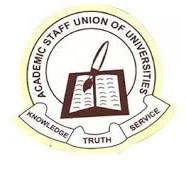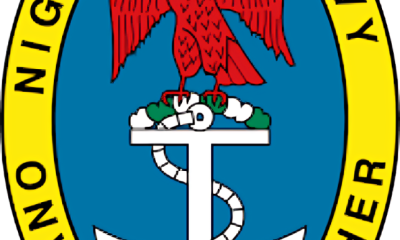NEWS
Customs: Borders Remain Closed

- Closed Borders Didn’t Affect Trade Adversely – Nigerian Shippers Council
By Prosper Okoye, Abuja
The Nigeria Customs Service has refuted a viral social media video alleging that President Bola Ahmed Tinubu has lifted the ban on the importation of goods that were previously prohibited by former President Muhammed Buhari, and subsequently reopened all of Nigeria’s borders.
This video gained traction shortly after the official announcement of the permanent removal of fuel subsidy.
As a result, it generated widespread enthusiasm among Nigerians, with some Twitter users expressing the belief that this measure was aimed at mitigating the inflationary impact resulting from the subsidy removal.“I don’t know what the person who started circulating that video intended to achieve, but it’s actually an old video featuring Controller Bamidele Makinde of the NCS, Ogun 1 Area Command, removing the barricades at the Idiroko border with Benin Republic,” stated Abdullahi Maiwada, the Customs spokesperson, during a phone conversation with DAILY ASSET.
“All borders that facilitate trade are open, except for those in the North-eastern states which remain closed due to security concerns. As of now, no order has been given for their reopening,” he clarified.
Commenting on the ban of used clothing, another issue trending on social media lately, with some users making comments such as “let the poor breath,” Abdullahi stated that the item has long been listed among contraband items due to the dangers it poses to the public.
According to a high-ranking official from the Nigerian Shippers Council, who preferred to remain anonymous, President Muhammadu Buhari’s administration implemented innovative policies and programs that benefited shippers and boosted trade, even amidst the challenges posed by the Covid-19 pandemic.
“Despite facing criticism, these initiatives, such as the Inland Dry Port Projects and the Truck Transit Park Projects, were conceived as part of Buhari’s port reform program, aiming to facilitate the import and export of goods. However, there has been reluctance among our people to embrace these services due to their aversion to change.”
Another anonymous source within the agency provided insights into why the borders were closed during President Buhari’s administration. The main reasons were national security and achieving self-sufficiency in agriculture.
“The closure was prompted by serious security challenges like banditry and terrorism, which raised concerns about arms smuggling through land borders. To address this, a committee led by former Head of State Abubakar Abdulsalami was formed, and their recommendations played a significant role in the decision-making process.
“Additionally, the closure aimed to strengthen the country’s agricultural sector and reduce reliance on imported goods, especially foreign rice. By limiting the importation of foreign rice through land borders, the government sought to support local farmers and balance international trade, promoting self-sufficiency in agriculture.
“Restrictions on the importation of certain items, including those prohibited by Nigerian customs, are common worldwide to protect economies and interests.
“Looking ahead, the current government should introduce measures that incentivize exports to boost foreign exchange earnings. Promoting local production is crucial for sufficient domestic supply and exports, requiring a reliable electricity supply.
“While the ban on cars entering through land borders has positively impacted customs revenue by reducing tax evasion, it has also presented challenges for shippers in non-coastal border areas. Careful consideration and support for these shippers are necessary to mitigate negative impacts.
“Moving forward, a thorough evaluation of border closure policies is essential to balance security concerns, economic growth, and the interests of various stakeholders.”
General News
Navy Arrests 2 Suspects Trafficking Pangolin Scales Worth N25m in A’Ibom

The Nigerian Navy Forward Operating Base (FOB), Ibaka, Akwa Ibom, has arrested two suspects trafficking 500 kilos of pangolin scales worth N25 million from Cameroon to Nigeria.
The Commanding Officer, Capt. Aliyu Abdullah, stated this while handing over the suspects and the items to the Nigeria Customs Service (NCS), in Ibaka on Saturday.
Abdullahi said that the suspects were arrested on routine patrol around Tom Shot Island on Thursday.
“The arrest was made during routine-stop-and-search of boats transiting from Cameroon to Nigeria,” he said.
He stated that Pangolins are a critically endangered species protected under the Convention on International Trade in Endangered Species of Wild Fauna and Flora (CITES).
Abdullahi noted that smuggling of products derived from endangered animals, such as pangolin scales, across International maritime borders constituted a serious violation of both International and domestic legal frameworks.
“They play a vital role in their ecosystem, however, their population has been decimated due to high demand for scales and meat particularly in black markets across Asia and Africa,” Abdullahi said.
The commanding officer said the shipment of scales was believed to be destined to a port in Lagos for smuggling out of Nigeria to markets in Asia.
“It breaches the convention on CITES, which prohibits the commercial trade of endangered species and their derivatives.
“Both Nigeria and Cameroon are signatories to this convention.”
Abdullahi said that the Navy, under the leadership of the Chief of the Naval Staff, Vice Adm. Emmanuel Ogalla would continue to tackle all forms of illegal activities within the waterways, thereby improving the National image of Nigeria Internationally.
Receiving the suspects, items and boat, Deputy Superintendent of Customs, Dada Fagbola, said that the suspects would be investigated for necessary prosecution
Education
ASUU Supports 12 Indigents Students With Scholarships in Bauchi Zone

The Academic Staff Union of Universities (ASUU) has awarded scholarships to 12 academically outstanding but financially disadvantaged indigents students across its Bauchi Zone.
The Bauchi Zone includes: Abubakar Tafawa Balewa University (ATBU), Sa’adu Zungur University (SAZU) Bauchi.
Others are Gombe State University, Federal University Kashere, University of Jos and Plateau State University Bokkos.
During the presentation held at the ASUU Secretariat, SAZU Bauchi on Saturday, the 12 beneficiaries received cheques worth ₦200,000 each from the national body of the Union.
Prof. Christopher Piwuna, Convener of the ASUU Grant, Research and Publications Committee was represented by Prof.
Lawan Abubakar, the immediate past Zonal Coordinator.Piwuna explained that the scholarships aimed to support brilliant students who were hindered by financial hardship.
“This initiative was born out of the need to counter the government’s rising imposition of school charges, which continues to burden students and their families,” he said.
Piwuna added that ASUU believed that such financial aid should be a grant, not a loan, noting: “We don’t expect any repayment from the beneficiaries or their parents.”
Prof. Namo Aku, the Zonal Coordinator, said that while the national body supported 12 students, the six universities in the zone collectively sponsored additional 18 indigenous students.
“ATBU and Gombe State University sponsored five students each, Plateau University and University of Jos sponsored two each, while SAZU and Federal University Kashere sponsored two students apiece,” he said.
Aku emphasized that ASUU’s mission includes supporting the less privileged through collective contributions from lecturers who are passionate about students’ success.
Speaking on behalf of the beneficiaries, Bappa Salisu, a Pharmacy student at SAZU, expressed gratitude to the Union.
“We are deeply thankful for this opportunity. It motivates us to work harder and live up to the expectations of those who believe in us,” he said
General News
Samuel Re-Elected COSFAN President

The Commonwealth Scholars and Fellows Alumni Association Nigeria (COSFAN) has elected new leaders, with Dr Ekundayo Samuel re-elected as President for a second term.
Dr Samuel, a lecturer in Veterinary Physiology and Biochemistry at the University of Ibadan, was returned unopposed due to his strong performance during his first tenure.
During Saturday’s virtual Quarterly General Meeting, Samuel and the newly elected National Executive Committee members were sworn in by legal practitioner, Titilope Adeyemi.
The new executives will serve for two years, with the option of renewal for eligible members for another two-year term.
Samuel, known for his academic and community work, is expected to steer COSFAN toward achieving its stated goals.
In his inaugural address, he pledged collaboration with the British Council Nigeria and the government to advance mentorship and development programmes.
Samuel, also Executive Director of Dove-Haven Foundation (DHF), promised to empower COSFAN members to impact their fields and communities meaningfully.
He urged all levels of government, institutions, and organisations to engage COSFAN’s experts and professionals for enhanced service delivery nationwide.
Samuel praised COSFAN Patrons – Prof. Ibrahim Gambari and the Ooni of Ife, Oba Enitan Adeyeye – for their enduring support and encouragement.
Other elected officers include Vice President: Dr Badia Maje-Sayyadi, and Secretary-General; Mr Josiah Owoeye of Tolaram Group, Lagos.
Dr Oluwatosin Igbayiloye, University of Ilorin, was elected Treasurer, while Mr Adewale Adeniyi, Pivot-GIS, Lagos, was named Publicity Secretary.
Regional Coordinators elected include Prof. Rayyan Garba (North-West), Mrs Victoria Shoyombo (North-Central), and Dr Fatimas Baba-Ari (North-East).
Also elected were Prof. Olayinka Nwachukwu (South-East), Prof. Emmanuel Akpabio (South-South), and Dr Adetoun Mustapha (South-West).
Dr Abiola Adimula was elected as the Ex-Officio member of the Executive Committee.
COSFAN is a non-profit association of Nigerians sponsored by the Commonwealth Scholarship Commission for postgraduate studies or fellowships.
The association has over 3,000 members who have benefited from various Commonwealth-funded academic and professional programmes.
COSFAN’s mission is to apply members’ knowledge to societal development, especially in education and the United Nations Sustainable Development Goals (SDGs)




























